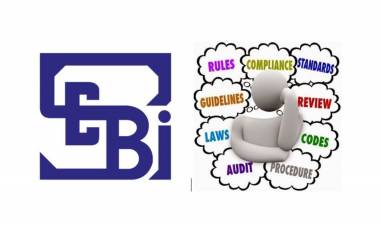INTERNAL AUDIT
INTERNAL AUDIT
The term “Internal Audit" (IA) is considered as villain by many of us. Even in the best of conditions, most people find that monitoring their processes is unsettling or challenging. Knowing the internal audit function, knowing what to predict during internal audits and knowing feasible perils to prevent contributes to making your trip much more convenient and beneficial.
WHAT IS INTERNAL AUDIT?

As per the institute of internal auditors, IA is defined as “an independent, objective, assurance and consulting activity, designed to add value and improve an organization’s operations. It helps an organization accomplish its objective by bringing a systematic, disciplined approach to evaluate and improve the effectiveness of risk management, control and governance processes”
Internal Audit is a department inside the company itself. With the word ‘internal’ layman can understand this. The team is assigned to impart even-handed, standalone reviews of the whole organization or the company. The internal auditors are the employees of the company. The Internal Auditors perform the audit and they crosscheck all the parameters in detail that is applicable for the company. They are the watchdogs of the company. This facilitates the board of directors or responsible senior management the exact position of the organization with reference to compliances.
OBJECTIVE

The main objective of appointing internal auditors is to spot out the deviations from the desired results before it reaches any regulators, stakeholders or external auditors. With this process, the deviation can be made good. Thus it becomes an integral part of the organization and ameliorates the company to be compliant in all ways.
 The apex body for the internal audit is Institute of Internal Auditors (IIA). It is an internationally recognized body. Any aspirants, who want to be certified member of IIA, have to apply and go through a written examination.
The apex body for the internal audit is Institute of Internal Auditors (IIA). It is an internationally recognized body. Any aspirants, who want to be certified member of IIA, have to apply and go through a written examination.
THE AUDIT PROCESS:
We have to select the internal audit team.
There should be a well prepared audit plan.
Set a desired goal.
Analyze the current scenario.
Compare the current with the desired goal.
Evaluate the difference.
Report the findings and recommendations to the senior management.
Take corrective action.
Follow-up at regular intervals
Evaluate the situation after corrective action
AUDIT REPORT

Once the auditor completes the audit he has to prepare a detailed report of the audit process done.
The report should contain 5 Cs:

They are:
Condition – The grey areas identified.
Criteria – Where did the deviation take place?
Cause – Reason for the deviation.
Consequence – What is the upshot of the deviation found?
Corrective Action – How the company should make good the digression.
AUDIT REPORT - QUALITY

As internal audit report is an integral part of decision making, the report should enable the management to understand the depth of the matter. It has to adhere to the below mentioned qualities.





VARIOUS TYPES OF INTERNAL AUDIT
There are many types of internal audit; few of them are enumerated below:
Compliance Audit: Here the internal auditors crosschecks whether the company complies with all the norms enlisted by the regulators wherever applicable.
Example: Compliance of Companies Act, 2013; RBI Act 1935, Labour laws, Factory Act etc.
Environmental Audit: Here the auditor analyzes how the company effects the environment. There are various environmental laws and regulations to be complied with.
Information Technology Audit: Here the auditor audits the information system, data security, firewall, backup, recovery etc.
Production or manufacturing or quality audit: Here auditor checks the process and ensures that the quality standards are maintained.
Accomplishment or Performance Audit: Here the audit checks whether the company complies with the internal set out policies and procedures.

Thus, from the above write-up we have learned what is internal audit, the process, types etc. It is very crucial for all companies to have their internal audit done. It helps the company to get an insight, increase their efficiency, evaluate, assess and comply. It enables to attract the stakeholders. A company without internal audit is like playing cricket without keeping the scores.
 Download APP
Download APP






































